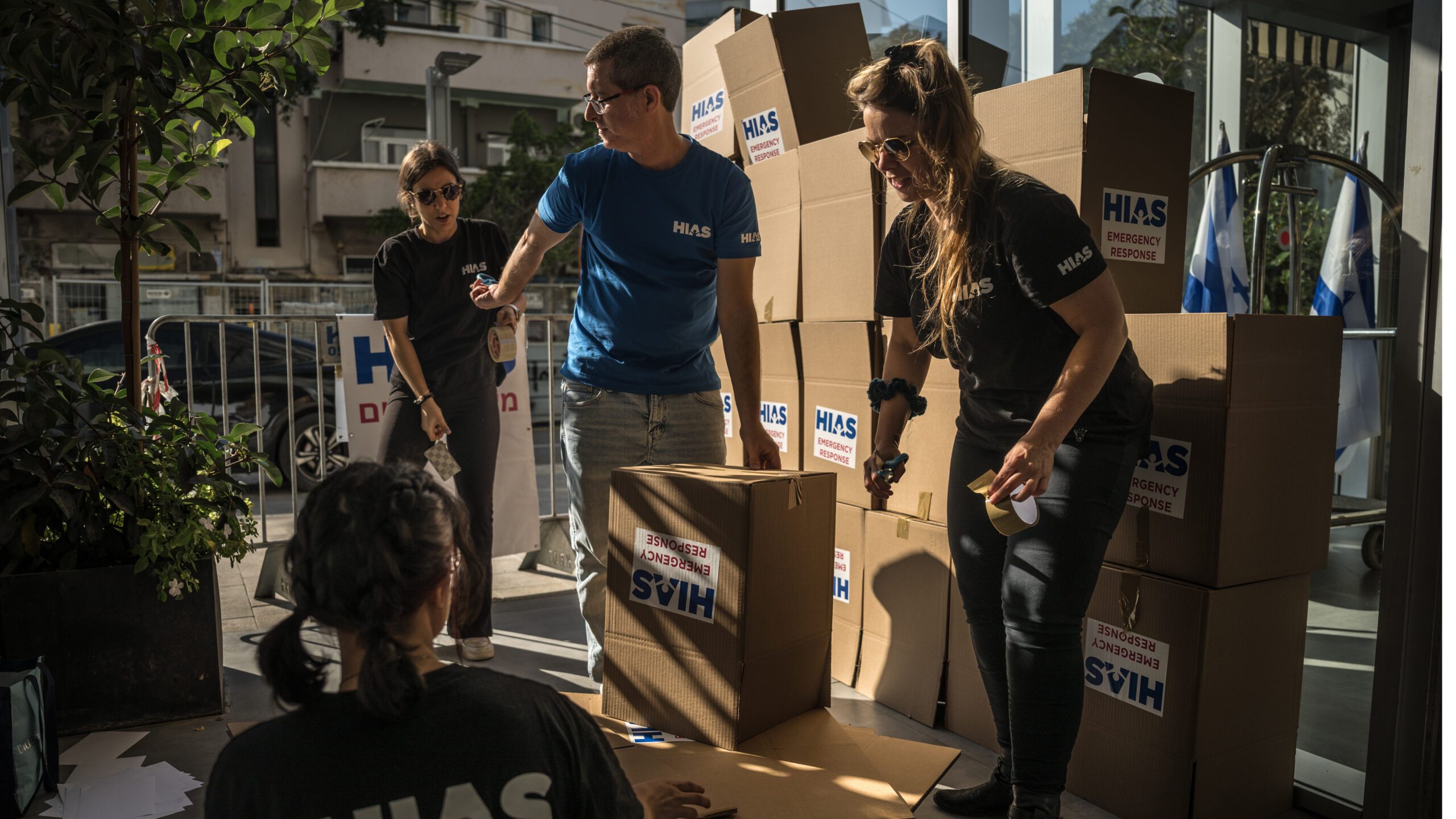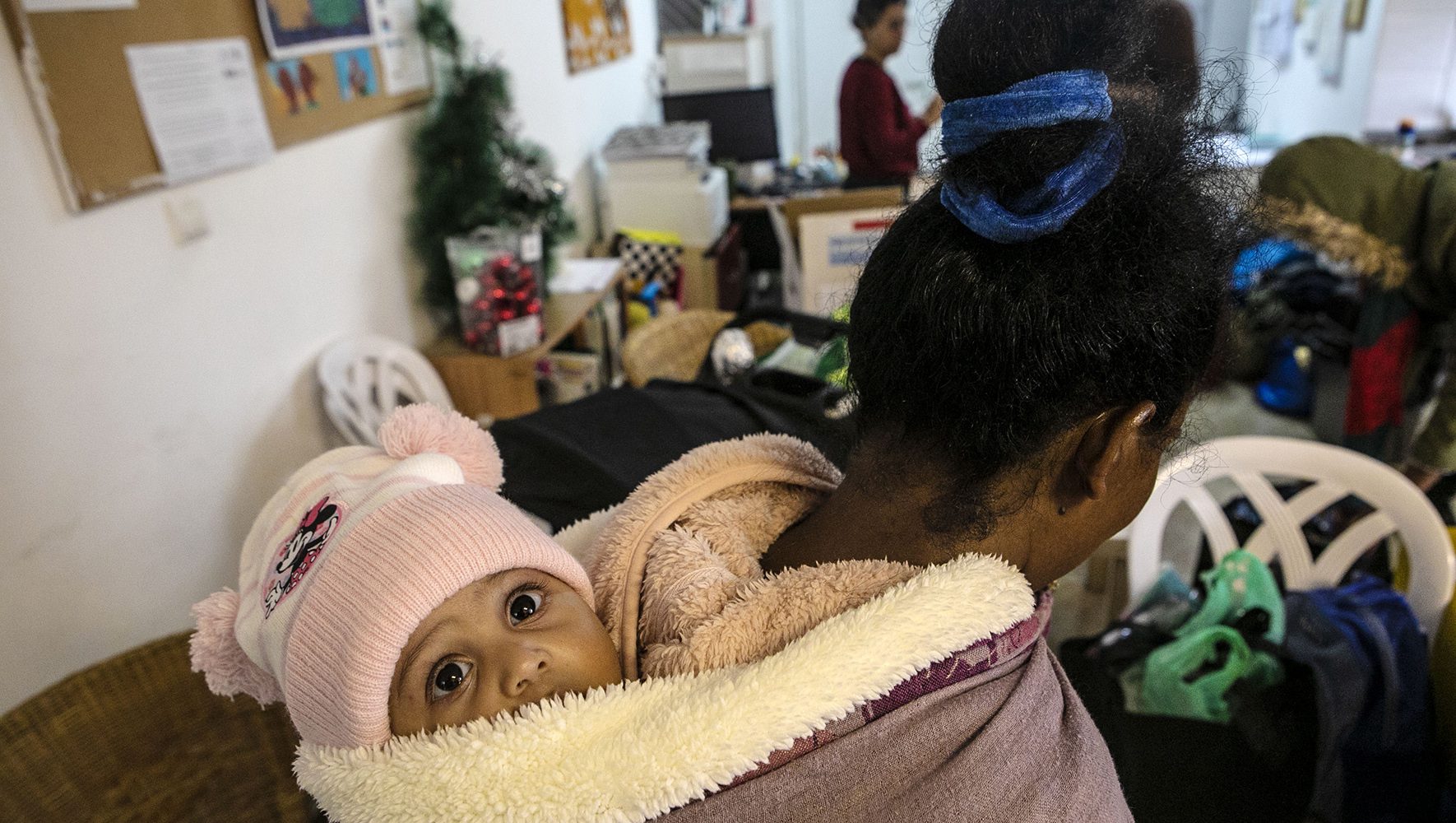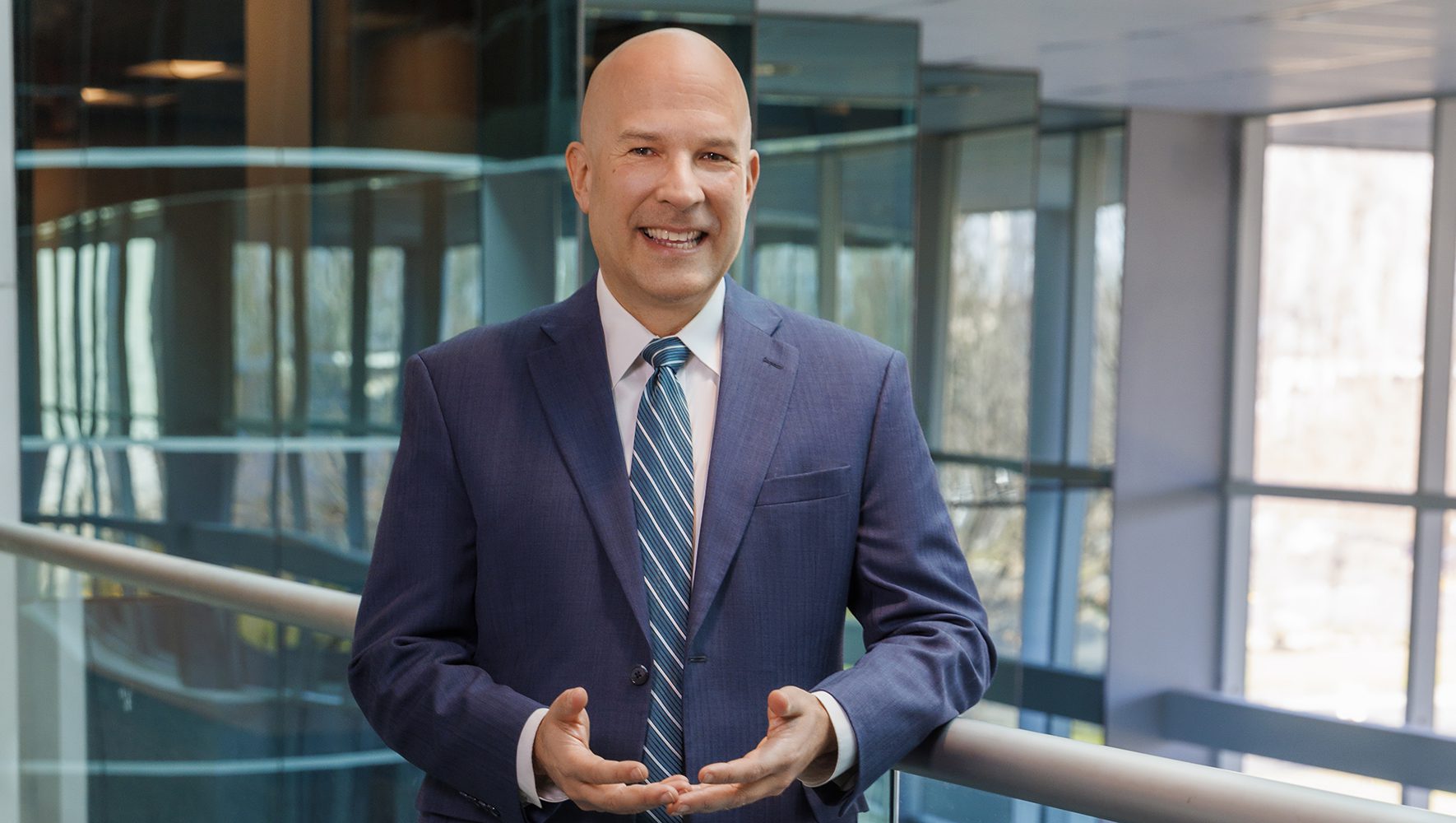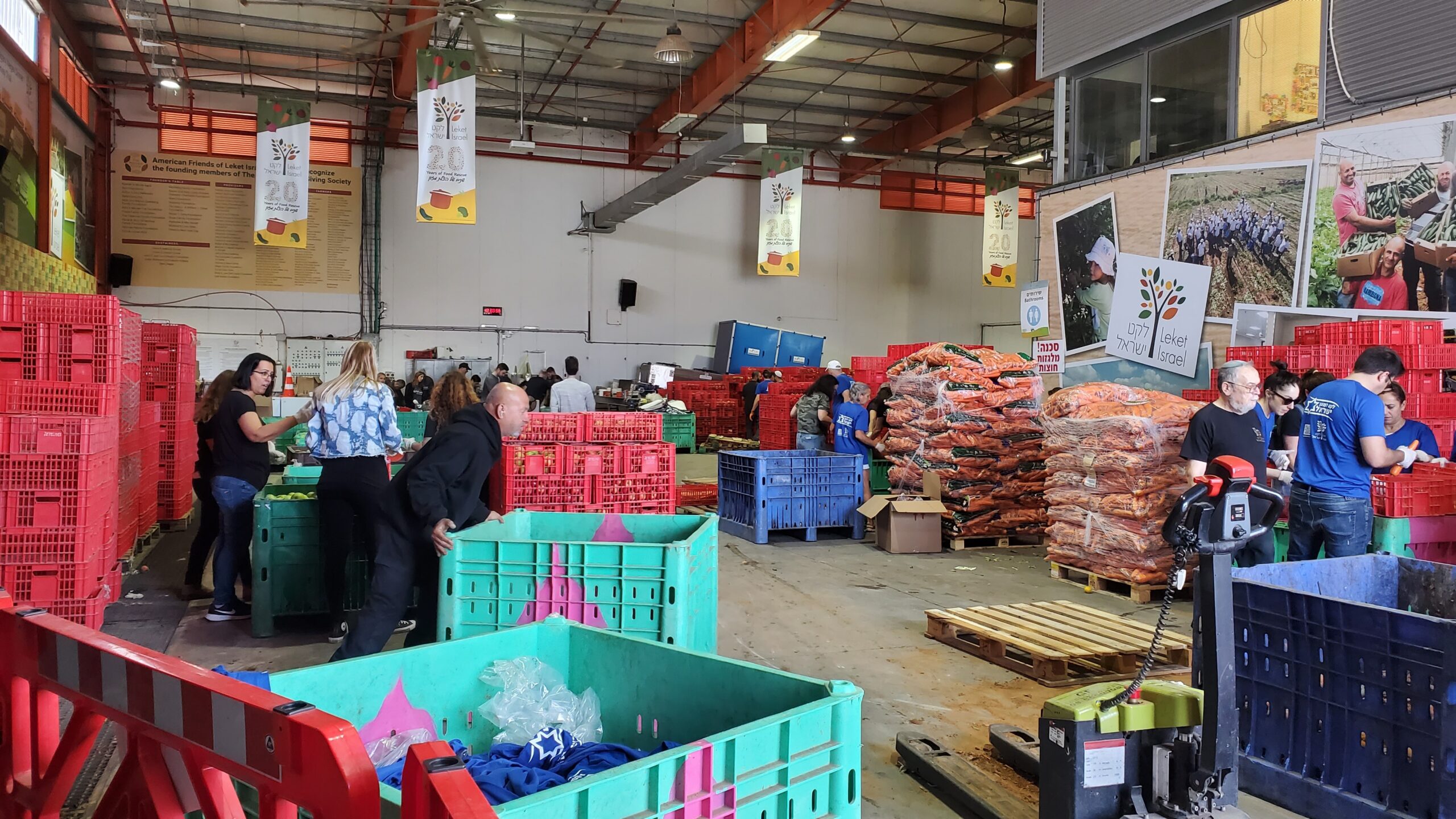Salvadoran Sisters Reunited with Parents in Charlotte
By Rachel Nusbaum, HIAS.org
Feb 02, 2016
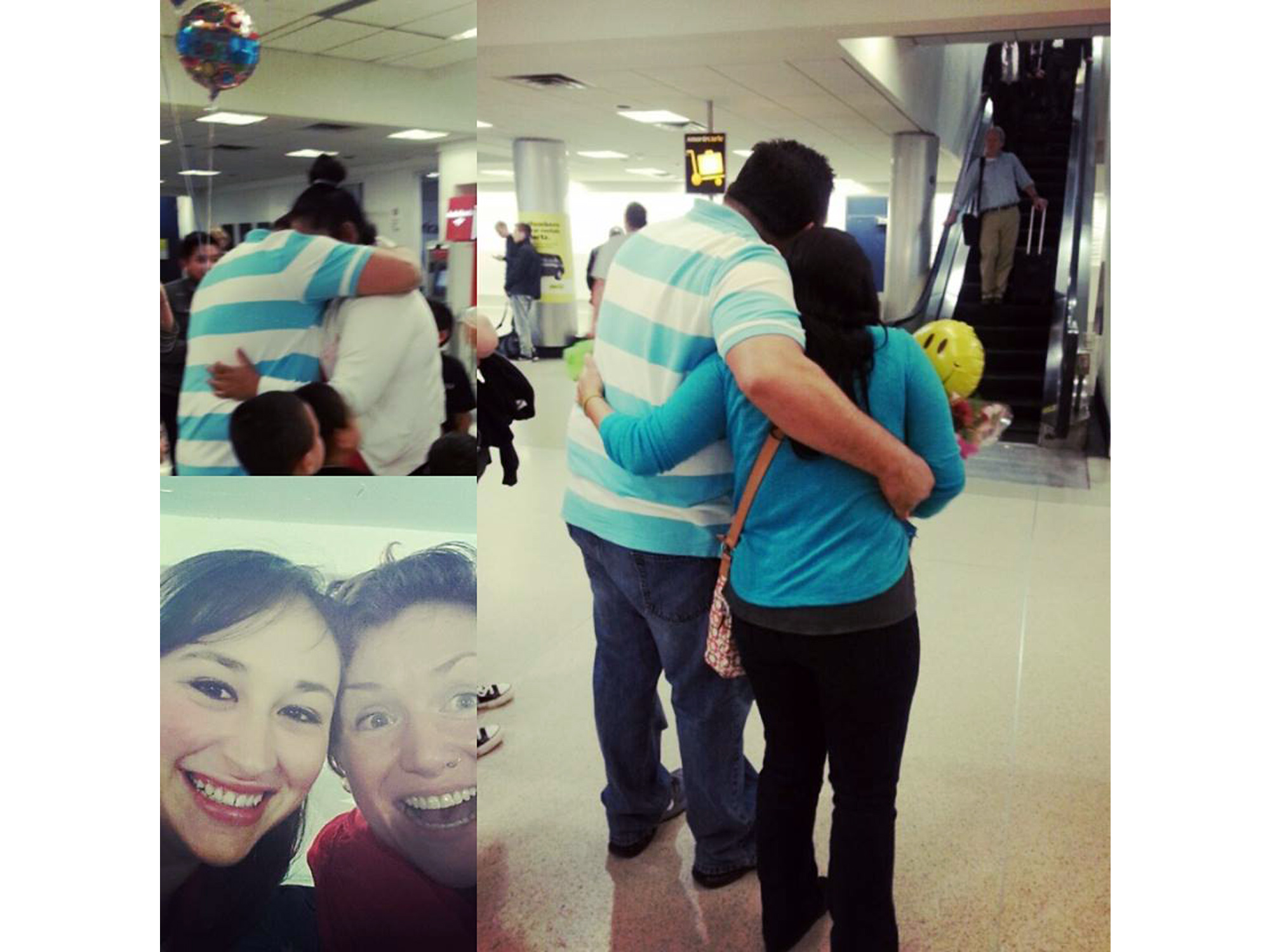
Carolina Refugee Resettlement Agency Staff members Amber and Carynne (bottom L) were present, along with many family members, to welcome Xenia and Vanessa, refugees from El Salvador on Nov. 12, 2015. The sisters were reunited with their parents through the Central American Minors program.
(Carolina Refugee Resettlement Agency)
Este post está disponible en español. Por favor, desplácese hacia abajo para leer.
The biggest difference between North Carolina and El Salvador? “It’s safer here. You can walk around at night,” Vanessa says. The 19-year-old has been in the U.S. for only a few months, but the words fly out almost immediately. “It was such a drastic change… I felt safe right away here.”
“The food is different here, too,” her younger sister, Xenia, chimes in. “The flavors are different. Even the salad is different.” She says that American-style salad is her new favorite food.
Xenia and Vanessa came to the U.S. through the Central American Minors program, which allows refugee status to qualified Central American minors because of threats they face at home. The goal is to allow children and teens to reunite with parents living legally in the United States without undertaking a dangerous journey or placing themselves in the hands of smugglers. As of December 1, 2015, the State Department had received applications for nearly 6,000 individuals.
The first step is for the U.S.-based parent to apply, which they can do with assistance from a local resettlement agency. For their father, Ramon Gomez, this was Carolina Refugee Resettlement Agency, HIAS’ partner in Charlotte. CRRA has already helped almost 100 local families submit applications. He called the girls in March to tell them that he had applied after hearing about the program on the news.
The process took a few months and required several visits to San Salvador, El Salvador’s capital city. To get to each appointment and interview, they would travel 2 hours by bus. “We were excited but nervous through all the interviews,” Vanessa says. It was “pure happiness” when they found out they had been approved and would able to rejoin their parents after so many years apart. They called their dad to give him the good news. “He was so happy that this was finally happening,” Vanessa recalls.
Their reunion at the airport was an emotional one. The girls were both less than 2 years old when their father left El Salvador to find a way to provide for his family. It had been more than 17 years since they had seen their parents in person. “There wasn’t much talking,” Vanessa says. Mostly, “there was a lot of hugging. And a little bit of crying.” They were also really excited to hang out with the three younger siblings they had spoken to on the phone but never met in person.
Carynne Spalding, a case aide at CRRA who has worked closely with the family, spent the morning with the girls. She helped them get registered for ESL classes and enrolled them in a job training program for Spanish-speakers. She served as their translator for this interview, too, since the girls are still far from comfortable in English. They hope that will change very soon, however. They have been eager to start ESL classes because they know how important language skills will be for their new lives.
Vanessa hopes to go to university. She would like to study architecture. And graphic design. And also law. “I’m not sure if its possible to do all three at once, but I’d like to if I could,” she says with a smile. She has a lot of dreams now. “In El Salvador, it would not have been easy to go to school,” she says. The biggest challenge would have been getting to and from classes. “Taking the bus is very dangerous there.”
Xenia’s aspirations also center on work and school. She’d like to study to become a teacher. She hopes to teach kindergarten, or else first or second grade. With a three-year-old brother at home, she’s had an opportunity to practice.
Asked if they have any advice for kids in El Salvador thinking about risking the journey north Vanessa says, “Just wait. Have patience with the process. And tell the truth.”
“Answer the phone every single time it rings,” Xenia adds.
For more information on the Central American minors program, visit: http://www.state.gov/j/prm/releases/factsheets/2014/234067.htm
Hermanas Salvadoreña Se Reúnen Con Sus Padres En Charlotte
La mayor diferencia entre Carolina del Norte y El Salvador? "Es más seguro aquí. Puede pasear por la noche ", dice Vanessa. La joven de 19 años de edad, ha estado en los Estados Unidos por sólo unos pocos meses, pero las palabras salen volando casi inmediatamente. "Fue un cambio tan drástico... me sentí segura inmediatamente aquí."
"La comida es diferente aquí, también", su hermana menor, Xenia, interviene. "Los sabores son diferentes. Hasta la ensalada es diferente.” Ella dice que la ensalada estilo Americano es su nuevo alimento favorito.
Xenia y Vanessa llegaron a los Estados Unidos a través del programa de Menores de Centroamérica, que permite el estatus de refugiado a los menores centroamericanos calificados debido a las amenazas que enfrentan en el hogar. El objetivo es permitir que los niños y adolescentes se reúnen con los padres que viven legalmente en los Estados Unidos sin tomar un viaje peligroso o poniéndose en manos de contrabandistas. A partir del 1ro de diciembre de 2015, el Departamento de Estado había recibido solicitudes de casi 6,000 individuos.
El primer paso es para el padre que vive en los Estados Unidos hacer una solicitud, lo cual se puede hacer con la ayuda de una agencia de reasentamiento local. Para su padre, Ramón Gómez, esto era Carolina Agencia de Reasentamiento de Refugiados, asociado de HIAS en Charlotte. CRRA ya ha ayudado a casi 100 familias locales someter sus aplicaciones. Llamó a las niñas en marzo para decirles que había solicitado después de escuchar sobre el programa en las noticias.
El proceso duró unos meses y requirieron varias visitas a San Salvador, capital de El Salvador. Para llegar a cada cita y la entrevista, ellos viajaron 2 horas en autobús. "Estábamos emocionadas pero nerviosas a través de todas las entrevistas," dice Vanessa. Se trataba de "pura felicidad" cuando se enteraron de que habían sido aprobados y sería capaz de reunirse con sus padres después de tantos años aparte. Llamaron a su padre para darle la buena noticia. "Estaba tan feliz de que esto finalmente estaba pasando", recuerda Vanessa.
Su reunión en el aeropuerto fue emocional. Las niñas estaban a menos de 2 años de edad cuando su padre se fue de El Salvador para encontrar una manera de mantener a su familia. Habían pasado más de 17 años desde que habían visto a sus padres en persona. "No hablamos mucho", dice Vanessa. Sobre todo, "había mucho abrazos. Y un poco de llanto". Ellas también estaban muy contentas de pasar el rato con sus tres hermanos menores que habían hablado por teléfono, pero nunca se conocieron en persona.
Carynne Spalding, un ayudante de caso en CRRA que ha trabajado con la familia, pasó la mañana con las niñas. Ella les ayudó a registrarse para las clases de inglés como segundo idioma y les inscribió en un programa de capacitación laboral para los hablantes de español. Ella sirvió como traductora para esta entrevista, también, ya que las niñas están todavía lejos de ser cómodas en Inglés. Sin embargo tienen la esperanza de que eso va a cambiar muy pronto. Ellas han estado ansiosas por comenzar las clases de ESL porque saben lo importante que las habilidades lingüísticas serán para su nueva vida.
Vanessa espera ir a la universidad. A ella le gustaría estudiar arquitectura. Y el diseño gráfico. Y también la ley. "No estoy segura si es posible hacer las tres cosas a la misma vez, pero me gustaría si pudiera," dice con una sonrisa. Ella tiene muchos sueños ahora. "En El Salvador, no habría sido fácil ir a la escuela," dice ella. El reto más grande habría sido ir y venir de las clases. "Tomar el autobús es muy peligroso allí."
Las aspiraciones de Xenia también se centran en el trabajo y la escuela. A ella le gustaría estudiar para ser maestra. Ella espera poder enseñar en el kindergarten, o primero o segundo grado. Con un hermano de tres años de edad en su casa, ella ha tenido la oportunidad de practicar.
Cuando se le preguntó si tienen algún consejo para los niños en El Salvador pensando en el riesgo del viaje hacia el norte Vanessa dice, "Sólo tiene que esperar. Tenga paciencia con el proceso. Y decir la verdad”.
"Responde a el teléfono cada vez que suena" añade Xenia.
Para obtener más información sobre el programa de Menores de Centroamérica, visite: http://www.state.gov/j/prm/releases/factsheets/2014/234067.htm


